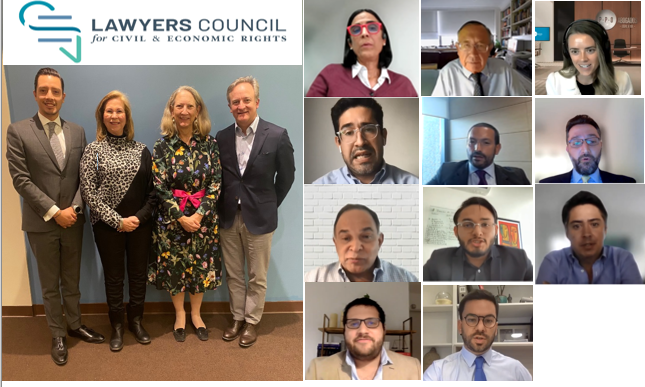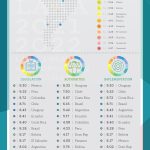This website uses cookies so that we can provide you with the best user experience possible. Cookie information is stored in your browser and performs functions such as recognising you when you return to our website and helping our team to understand which sections of the website you find most interesting and useful.
Vance Center’s Anticorruption Assessment Receives Widespread Coverage
March 2022
Media throughout the Americas took note of the Latin America Anticorruption Assessment 2021-2022 produced by the Vance Center’s Lawyers Council for Civil and Economic Rights in the Americas. It delineates legal efforts and shortcomings to preventing and redressing corruption in seventeen countries in the region.
The New York City Bar Association had issued a press release on the assessment, which is available in English, Spanish and Portuguese. La Hora, El Periódico, Prensa Libre in Guatemala, Reforma, El Economista, Eje Central, El Financiero, Latinus, Noticieros GREM in Mexico, Bloomberg in Panama, Diario Libre in the Dominican Republic, Law.com and Lexlatin reported on the assessment.
In connection with the assessment, the Lawyers Council hosted a regional hybrid event with 200 participants to present the main findings. Panelists attending in person included (in speaking order): Antonia Stolper (Vance Center Vice-Chair for Latin America and Shearman & Sterling counsel); Todd Crider (Vance Center Executive Sub-Committee and Simpson Thacher partner); Jaime Chavez Alor (Vance Center Latin America Policy Director and editor of the assessment); and Mary Fernandez (Headrick, Rizik, Alvarez & Fernandez, Dominican Republic). Virtual participants included (listed in alphabetical order per country): Ignacio Meggliolario (MBP Partners, Argentina); Lindsay Sykes (PPO Bolivia); Eloy Rizzo (Demarest, Brazil); Adriana Bueno (Gomez Pinzon, Colombia); Juan Carlos Tristan (BLP Costa Rica); Hernan Perez Loose (Coronel & Perez, Ecuador); Ali Ordonez (BLP Honduras); Alfonso Carrillo (Carrillo & Asociaciados, Guatemala); Leonel Perez Nieto (Creel, Garcia Cuellar, Aiza & Enriquez, Mexico); Sergio Mattos (Rebaza, Alcazar & de las Casas, Peru); and Igal Guertein (Uruguay).
Lawyers Council members and allies discussed key findings of three categories of the assessment: legislation, authorities, and implementation in each of the countries. The video of the event is available here.
The assessment, addresses legal efforts and shortcomings in preventing and redressing corruption in seventeen countries, making key conclusions:
- There are legal efforts to counter corruption, but these efforts are unproductive if laws aren’t accompanied by actions to implement those laws.
- There are many efforts to punish corruption, but efforts to prevent it are insufficient and ineffective.
- Institutions in charge of countering corruption are not independent and lack the capacity to investigate and punish corruption.
This 2021-2022 edition did not find specific improvements in efforts against corruption compared to the first edition in 2020, and some setbacks in the independence and capacity of authorities were detected in Guatemala, Mexico and Peru.
Significant differences exist among the seventeen countries, according to the assessment, which employs quantitative and qualitative criteria to rank the countries on the success of their anti-corruption efforts from zero (lowest) to ten (highest), based on data from legal experts in the countries. Uruguay is the top- ranked country, and Venezuela the lowest.

The criteria focus on key aspects of the fight against corruption: public vs. private sector corruption; complaint mechanisms; whistleblower protection; specialized agencies; institutional coordination mechanisms; civil society engagement and participation; and transparency and access to information. It relies on the legal expertise and practical experience of lawyers engaged in anti-corruption practice in various sectors, including law firms, businesses, academia, civil society organizations, human rights defenders, and others.
In the assessment, the Lawyers Council for Civil and Economic Rights calls on the legal community to address regional and country-level challenges that the assessment identified. The recommendations highlight the importance of technology in mechanisms to prevent corruption, and regional cooperation of the private sector and the legal community to promote best practices.
The Lawyers Council brings together private-practice law professionals in the Americas to combat corruption and to support the rule of law and the work of civil society. The Lawyers Council consists of 18 lawyers from 14 countries, distinguished in private legal practice nationally and regionally, with demonstrated civic commitment.
Read the full report here: https://bit.ly/LCEAL21


